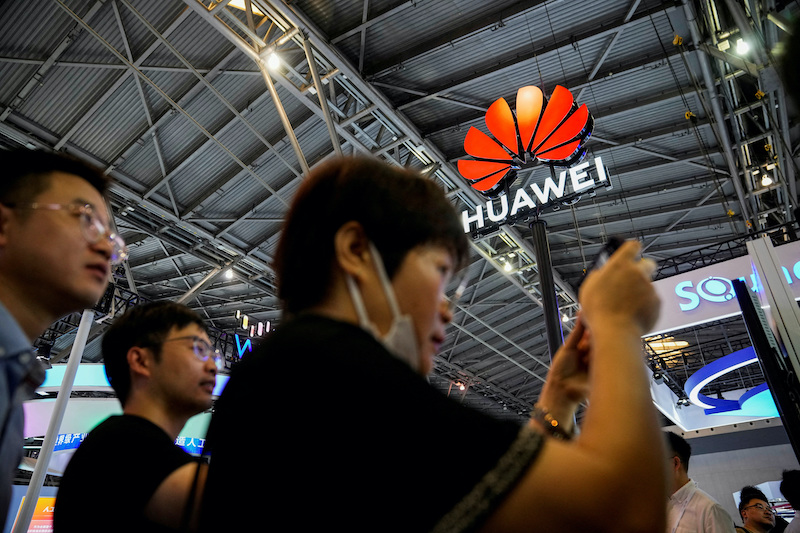China’s biggest state-backed chipmaker, Semiconductor Manufacturing International Corp (SMIC), is gearing up to mass produce new-generation 5-nanometre chips designed by the country’s technology giant Huawei, according to a Financial Times report.
Both firms have been sanctioned by the US over their links to Chinese military, but have emerged as key players in the Xi Jinping government’s push to defy chip export controls and establish semiconductor self-sufficiency.
SMIC has put together new semiconductor production lines in Shanghai to begin mass production, the report said, citing people familiar with the move.
Also on AF: Huawei Smartphone Output Hit, As Demand Soars For AI Chips
The chipmaker is aiming to use its existing stock of US and Dutch-made equipment to produce the 5nm chips, FT said.
China spent a record $10.6 billion in the last three months of 2023 to stock up on chipmaking equipment, amid tightening chip restrictions imposed by the US and its allies Japan and the Netherlands.
ASML — the world’s largest producer of lithography systems key to chipmaking — was among China’s biggest suppliers until the Dutch government revoked its licence to do so at the start of 2024.
Even so, SMIC is gearing up to use its stockpiled equipment to mass produce Huawei’s Kirin chips. Those chips will power new versions of Huawei’s smartphones, FT reported, citing people with knowledge of the plans.
AI chips planned too
The report added that if their production was “successful enough” for smartphones, SMIC will also produce Huawei’s Ascend 920 chips on 5nm.
The Ascend chips — currently produced with 7nm technology — are being seen as the closest rival to US chipmaker Nvidia’s most advanced chips.
Nvidia has been prohibited by the US government from selling advanced artificial intelligence (AI) chips in China as part of export control measures. That has caused a surge in demand for Huawei’s Ascend chips as Chinese AI firms shun slower chips or move to curb their dependance on Nvidia, fearing tighter export controls.
View this post on Instagram
“Could this be just a demonstration by Huawei and SMIC to show the Chinese government it can be done? If money is no object, then it might happen,” Douglas Fuller, an expert on China’s chip sector told the FT.
Even so, experts have pointed out that SMIC faces several challenges in its push to prove its 5nm capabilities. The company is currently charging 40 to 50% more for its 5nm and 7nm chips, compared to Taiwan’s TSMC, industry insiders told the FT.
SMIC’s yield – that is, chips considered usable commercially – is also less than a third of TSMC’s, they said.
- Vishakha Saxena
Also read:
Slower Nvidia Chip Out in Q2 But China Firms ‘Don’t Want It’
New Huawei Laptop Fuels Talk of Sanctions-Beating 5nm Chip
Nvidia’s New AI Chip for China Priced Close to Huawei Alternative
China Firms Rush to Poach Nvidia Clients With AI Chip Offerings
US Curbs Set Off Sales, Tech Boom for China Chip Equipment Firms
Raimondo’s Nvidia Chip Warning, Vow of Firmer Curbs Irks China
US Plans New Rules for Cloud Firms to Cut Off China AI Access
China to Lead 2024 Chip Expansion with 18 New Fabs – SEMI
China’s Dutch Chip-Equipment Imports Jump 1,050% – SCMP
China Way Ahead of US in Chip Startup Funding – PitchBook























